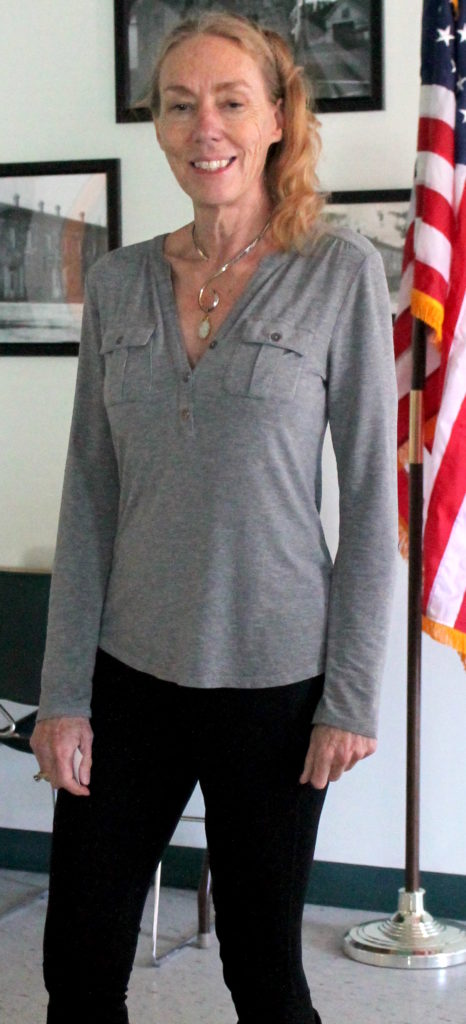Dr. Karen Gedney previewed her new book “30 Years Behind Bars,” about her time as the prison doctor at Northern Nevada Correctional Center, for members of the Nevada State Prison Preservation Society on Feb. 17.
The book is now available on Amazon.

Dr. Karen Gedney. Photo by Didi Cheney
Now retired, Gedney told about 30 members of NSPPS during a general membership meeting of her ordeal being taken hostage in 1989 by Kenneth James Meller, who was serving a life sentence for killing Nevada State Trooper Gary Gifford in 1975.
Meller, having made his way into the prison’s infirmary, asked her what day it was. She told him it was Oct. 13, to which he responded: “This is the day I die.”
Grabbing the slim doctor with both hands around her neck, he threw her across a desk and attacked her. She was held for 10 hours before Carson City sheriff’s deputies stormed the room with a flash-bang grenade and killed Meller.
Gedney said she went home and, to deal with the trauma, scrubbed every floor in her house. Then she went back to work on Monday.
“Only the inmates talked to me,” she said. “They wanted to know if I was OK.”
She passed around a card signed by dozens of inmates that reads inside, “Thank you for being here.”
It was one of several examples offered by Gedney on the contradictions of the rough life behind bars and her mission as a doctor and healer, a theme of her book. She talked about the AIDS epidemic that swept the country in the 1980s. Unlike many states, Nevada tested every inmate, she said, and made efforts to control its spread.
Some of her most touching stories involved the use of pets to connect with hardened criminals who fared better with animals than their fellow humans.
“They would ask them, ‘Do you want to see a chaplain? Do you want to see a psychiatrist? Do you want to see a dog?’ The dog won every time.” That drew a chuckle from former chaplain Jim Kelly, who was in the audience.

Card given to her by inmates.
She told how one inmate, who was constantly kept isolated from other prisoners, was allowed one day to be greeted by a dog. “Chris got down on his knees, and the dog got on its haunches and reached up with both paws and hugged him. I about lost it. He hadn’t had human interaction in 20 years.”
Greg Smith — one of three ex-prison wardens at the meeting, along with Glen Whorton and Robin Bates — said walking the cell blocks with a dog was an effective way to calm the prison population.
“Guys would tell me, ‘I haven’t petted a dog in 25 years,'” he recalled.
Whorton thanked Gedney for her work as the prison’s physician, calling her professional, compassionate and tough. “I was glad you were there,” he said.
And Gedney’s stories moved one attendee to describe her own struggles with the legal system, telling how her now-deceased husband, an inmate who suffered from diabetes and heart disease, had been under the doctor’s care.
“I never got a chance to thank you,” she told Gedney.

